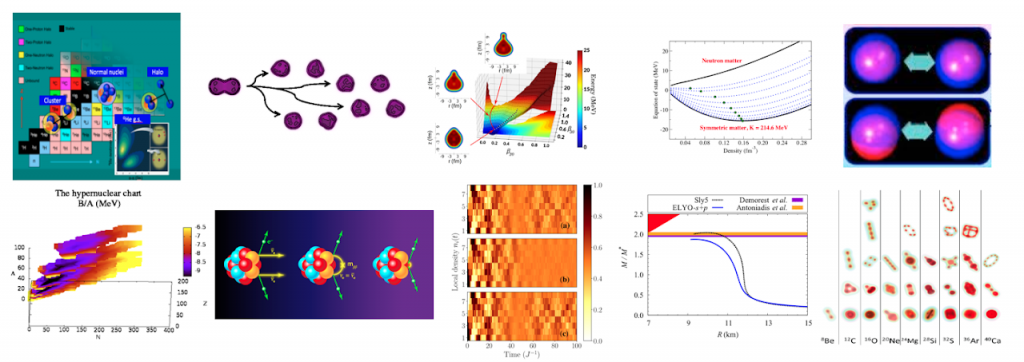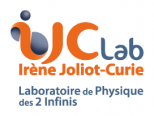
Head of the team: Elias KHAN
The core of this activity is the development of theories to understand nuclear phenomena, such as the inter-nucleon interaction, the internal structure and dynamics of nuclei, as well as the impact of the properties of nuclear matter in other fields such as nuclear astrophysics. The developed methods range from effective field theories to various many-body techniques such as density functional theories, ab initio methods, and transport theory, combining formal techniques and their associated numerical implementations. These tools are by definition interdisciplinary and have a strong overlap with fields such as condensed matter, atomic physics and quantum chemistry. In addition to its fundamental character, this theme is essential for the microscopic interpretation and prediction of experimental results in nuclear physics with strong support for current or future experiments carried out at national and international facilities, and for the understanding of certain astrophysical phenomena, (neutron stars and their mergers, supernovae, nucleosynthesis). The team participates in the Transverse Group “Nuclear Physics in the Cosmos”. There are also connections with Beyond Standard Model physics through the study of fundamental symmetries in nuclei, such as neutrinoless double-beta decay. In particular, our expertise covers
-
Nuclear structure, properties of nuclei (few-body systems, ab-initio methods, density functional theory, collective excitations)
-
Description of nuclear reactions (ab-initio methods, time-dependent density functional theory, quantum stochastic approaches)
-
Impact of nuclear physics in astrophysics (equation of state, multi-messenger)
We are currently engaging in the development of emergent techniques:
-
Machine Learning applied to nuclear physics
-
Quantum Computing





